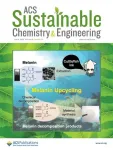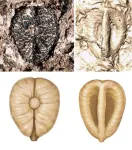(Press-News.org) DALLAS, July 1, 2024 — The American Heart Association, celebrating 100 years of lifesaving service as the world’s leading nonprofit organization focused on heart and brain health for all, has named its volunteer leadership for fiscal year 2024-25. Keith Churchwell, M.D., FAHA, serving as the new volunteer president, and Marsha Jones, continuing a two-year term as volunteer board chairperson, will help guide the Association as it enters its second century. Churchwell and Jones are long-time volunteer leaders for the American Heart Association, having both served on numerous boards and committees locally and nationally.
Churchwell, of Branford, Connecticut, is the Association’s 88th volunteer president to serve in the organization’s 100 years of existence. In this role, he serves as the lead volunteer scientific and medical officer of the organization. He most recently served as President of Yale New Haven Hospital and Associate Clinical Professor of Medicine at Yale School of Medicine in New Haven, Connecticut. He received his bachelor’s degree from Harvard University and his medical degree from Washington University in St. Louis, Missouri. He completed his postgraduate training in cardiovascular disease and nuclear cardiology at Emory School of Medicine and is board certified in internal medicine and cardiovascular disease.
Well-recognized as a health equity change agent, Churchwell was honored with the 2021 American Heart Association Award of Meritorious Achievement for his efforts to address health disparities across the country and helped author the Association’s seminal presidential advisory, Advancing Healthcare Reform: The American Heart Association’s 2020 Statement of Principles for Adequate, Accessible, and Affordable Health Care. Additionally, as volunteer chair for the Association’s Advocacy Coordinating committee, he has helped champion a number of important public policy victories including the passage of laws and policies requiring CPR training in schools, ensuring access to defibrillators in youth sports, reducing nicotine in cigarettes, removing flavored vapes from the market and expanding Medicaid.
“Recent reports from the American Heart Association outline a chasm of inequity that continues to grow at a critical time as our population becomes more richly diverse,” Churchwell said. “I am excited as the organization moves into our second century and to embrace new and innovative strategies to expand our research and understanding of how we can ensure cardiovascular health and total health for all.”
Jones, of Port Saint Lucie, Florida, is the retired executive vice president and chief diversity officer for The PNC Financial Services Group Inc. in Pittsburgh. She received her undergraduate degree from Lehman College and a Master of Arts from Columbia University. Additionally, she is a graduate of The Executive Leadership Development Program of the Wharton School at the University of Pennsylvania.
Jones has long been an advocate and leader in the development and implementation of strategies to support diversity and inclusion in the workplace. She is a frequent national guest speaker on corporate innovation and has received national recognition as a trailblazing champion for women of color.
“Serving my first term during the centennial of the American Heart Association has been such an honor as we have showcased the many advancements made toward ensuring everyone has an opportunity to lead a long, healthy life,” Jones said. “During our second century we will continue to make health equity a priority across the globe. We have some tremendous challenges ahead and also tremendous opportunities. I look forward to supporting new innovations to help shape the future of this great organization and the health of all people.”
“As we enter our second century, this is a pivotal time for the American Heart Association and I know that under the strong volunteer leadership of Marsha Jones, Dr. Keith Churchwell and the entire board, we will continue to advance our work as a global force,” said Nancy Brown, chief executive officer of the American Heart Association. “With their broad experience and unwavering commitment, we will build upon the foundation established 100 years ago to ensure health and hope for everyone, everywhere.”
Linda Gooden, a retired executive vice president of Lockheed Martin Corporation, is serving her second of a two-year term as the Association’s volunteer treasurer. Gooden is a long-time volunteer of the Association and has provided instrumental leadership in implementing the organization’s multiyear cybersecurity program and commencing the process to implement a new financial system. For her outstanding leadership in advancing technology and risk management, she received the American Heart Association’s 2023 Morgan Stark Memorial Award. Gooden and her husband are also contributors to the Association’s Bernard J. Tyson Impact Fund, supporting work in their local Washington, D.C., region to break down social and economic barriers to health equity
The Association also announced its volunteer president-elect and volunteer chairperson-elect.
Stacy M. Rosen, M.D., FAHA, is the new volunteer president-elect for the Association. She is executive director of the Katz Institute for Women’s Health, the Partners Council Professor of Women’s Health and Professor of Cardiology at the Donald and Barbara Zucker School of Medicine at Hofstra/Northwell in Queens, New York. Rosen is a leading clinical expert in women’s cardiovascular disease with a focus on health disparities, gender-based research, community partnerships and education.
Lee Shapiro, co-founder and managing partner at 7wireVentures, an investment firm located in Chicago, will serve his second of a two-year term as the volunteer board chairperson-elect for the Association. He previously served as the organization’s volunteer treasurer and has held numerous national and local volunteer roles. He is a co-founder and board member of The World Innovation Network, the advisory committee of the University of Chicago Innovation Fund Advisory Committee and the Samsung Digital Health Advisory Board.
The American Heart Association’s fiscal year runs July 1, 2024 through June 30, 2025.
Additional Resources
Photographs are available on the right column of the release link.
Learn more about the American Heart Association’s 2024-25 volunteer and staff leadership.
AHA News article – New AHA president leads with a cardinal rule (June 2024)
AHA News article - New AHA board chair Marsha Jones knows all about navigating challenges (June 2023)
Follow AHA/ASA news on X @HeartNews
###
About the American Heart Association
The American Heart Association is a relentless force for a world of longer, healthier lives. We are dedicated to ensuring equitable health in all communities. Through collaboration with numerous organizations, and powered by millions of volunteers, we fund innovative research, advocate for the public’s health and share lifesaving resources. The Dallas-based organization has been a leading source of health information for a century. During 2024 - our Centennial year - we celebrate our rich 100-year history and accomplishments. As we forge ahead into our second century of bold discovery and impact our vision is to advance health and hope for everyone, everywhere. Connect with us on heart.org, Facebook, X or by calling 1-800-AHA-USA1.
END
New national volunteer leaders to guide American Heart Association into second century
A cardiologist renowned as a health equity champion and an executive leader in workplace diversity and inclusion will lead the American Heart Association into 2025
2024-07-01
ELSE PRESS RELEASES FROM THIS DATE:
Geological Society of America reduces student membership dues to $25
2024-07-01
FOR IMMEDIATE RELEASE
1 July 2024
The Geological Society of America
Release No. 24-06
Contact: Jason Elkins
+1-303-357-1026
jelkins@geosociety.org
Boulder, Colo., USA: The Geological Society of America (GSA) is excited to announce a significant reduction in membership fees for students. Effective 1 July 2024, undergraduate and graduate students majoring in geology or related sciences can sign up for an annual student membership for just $25. This initiative underscores GSA's commitment to supporting the next generation of geoscientists by making membership more accessible and affordable.
The ...
Melanin from cuttlefish ink as a sustainable biomass resource
2024-07-01
Every year, the negative effects of human activities on the environment become increasingly clear. From climate change and microplastics to the endangerment and extinction of countless species, it is evident that we need to find new ways to achieve sustainability. Fortunately, many research groups in prominent fields like chemistry and materials science are tirelessly working to develop solutions to get us closer to circular and sustainable economies.
One area that has attracted much attention in this regard is biomass upcycling. It refers to the transformation of naturally available organic materials into ...
AI-powered study explores under-studied female evolution
2024-07-01
Pioneering AI-powered research on butterflies has probed the under-studied evolution of females and adds to a debate between the founding fathers of evolution.
The University of Essex study – published in Communications Biology – explores a controversy between Victorian scientists Charles Darwin and Alfred Russel Wallace.
Darwin thought males had more variation, as females often chose mates based on male appearance.
Whereas Wallace thought natural selection across sexes was the biggest factor in difference.
For over a century, scientists ...
New findings may fix the replicability crisis in microbiome research
2024-07-01
Our bodies are inhabited by trillions of microorganisms, with specific microbes unique to each individual. Through experimentation, scientists have pinpointed certain factors that account for variation in the gut: diet, living conditions, exercise and maternal line. Now, scientists at University of California San Diego have discovered another factor that affects the composition of the gut microbiome: time of day. In fact, the scientists have found that time of day is such an important factor that they’re calling on the National Institutes of Health (NIH) to require researchers ...
Nanorobot with hidden weapon kills cancer cells
2024-07-01
Researchers at Karolinska Institutet in Sweden have developed nanorobots that kill cancer cells in mice. The robot’s weapon is hidden in a nanostructure and is exposed only in the tumour microenvironment, sparing healthy cells. The study is published in the journal Nature Nanotechnology.
The research group at Karolinska Institutet has previously developed structures that can organise so-called death receptors on the surface of cells, leading to cell death. The structures exhibit six peptides (amino acid chains) assembled in a hexagonal pattern.
“This hexagonal nanopattern of peptides becomes a lethal weapon,” explains Professor ...
Largest ever genetic study of age of puberty in girls shows links with weight gain
2024-07-01
Genes can indirectly influence the age at which girls have their first period by accelerating weight gain in childhood, a known risk factor for early puberty, a Cambridge-led study has found. Other genes can directly affect age of puberty, some with profound effects.
In the largest study of its kind to date, an international team led by researchers at the Medical Research Council (MRC) Epidemiology Unit, University of Cambridge, studied the DNA of around 800,000 women from Europe, North America, China, Japan, and Korea.
Published today in Nature Genetics, the researchers found more than 1,000 variants – small changes in DNA – that ...
Sixty-million-year-old grape seeds reveal how the death of the dinosaurs may have paved the way for grapes to spread
2024-07-01
If you’ve ever snacked on raisins or enjoyed a glass of wine, you may, in part, have the extinction of the dinosaurs to thank for it. In a discovery described in the journal Nature Plants, researchers found fossil grape seeds that range from 60 to 19 million years old in Colombia, Panama, and Peru. One of these species represents the earliest known example of plants from the grape family in the Western Hemisphere. These fossil seeds help show how the grape family spread in the years following the death of the dinosaurs.
“These are the oldest grapes ever found in this part of the world, and they’re a few million years ...
AI model finds the cancer clues at lightning speed
2024-07-01
Researchers at the University of Gothenburg have developed an AI model that increases the potential for detecting cancer through sugar analyses. The AI model is faster and better at finding abnormalities than the current semi-manual method.
Glycans, or structures of sugar molecules in our cells, can be measured by mass spectrometry. One important use is that the structures can indicate different forms of cancer in the cells.
However, the data from the mass spectrometer measurement must be carefully analysed by humans to work out the structure from the glycan fragmentation. This process can take anywhere from hours ...
Individuals can tell if their memories are trustworthy, new study shows
2024-07-01
How much trust should we put in our memories? New research shows we have a good awareness of when we are recalling events accurately – and when our brain is filling in gaps with general knowledge.
Memories are a blend of recalled details and ‘prototypical’ information, but a study at the University of Birmingham has shown that when prototypes appear more prominent, we become less confident in the recollection.
This means that we are able to distinguish between these two types of memory, and accurately assess how ...
Palliative care beneficial to manage symptoms, improve quality of life for people with CVD
2024-07-01
Statement Highlights:
Palliative medication management focuses on providing relief from symptoms and enhancing quality of life for people with cardiovascular disease throughout the various stages of the disease.
Decisions about initiating, adjusting or discontinuing cardiovascular and other medicines should be patient-centered and include input from multiple specialties including cardiology experts in close collaboration with primary care professionals.
Evidence shows that adding palliative care interventions to standard cardiovascular ...
LAST 30 PRESS RELEASES:
Microalgae-derived biochar enables fast, low-cost detection of hydrogen peroxide
Researchers highlight promise of biochar composites for sustainable 3D printing
Machine learning helps design low-cost biochar to fight phosphorus pollution in lakes
Urine tests confirm alcohol consumption in wild African chimpanzees
Barshop Institute to receive up to $38 million from ARPA-H, anchoring UT San Antonio as a national leader in aging and healthy longevity science
Anion-cation synergistic additives solve the "performance triangle" problem in zinc-iodine batteries
Ancient diets reveal surprising survival strategies in prehistoric Poland
Pre-pregnancy parental overweight/obesity linked to next generation’s heightened fatty liver disease risk
Obstructive sleep apnoea may cost UK + US economies billions in lost productivity
Guidelines set new playbook for pediatric clinical trial reporting
Adolescent cannabis use may follow the same pattern as alcohol use
Lifespan-extending treatments increase variation in age at time of death
From ancient myths to ‘Indo-manga’: Artists in the Global South are reframing the comic
Putting some ‘muscle’ into material design
House fires release harmful compounds into the air
Novel structural insights into Phytophthora effectors challenge long-held assumptions in plant pathology
Q&A: Researchers discuss potential solutions for the feedback loop affecting scientific publishing
A new ecological model highlights how fluctuating environments push microbes to work together
Chapman University researcher warns of structural risks at Grand Renaissance Dam putting property and lives in danger
Courtship is complicated, even in fruit flies
Columbia announces ARPA-H contract to advance science of healthy aging
New NYUAD study reveals hidden stress facing coral reef fish in the Arabian Gulf
36 months later: Distance learning in the wake of COVID-19
Blaming beavers for flood damage is bad policy and bad science, Concordia research shows
The new ‘forever’ contaminant? SFU study raises alarm on marine fiberglass pollution
Shorter early-life telomere length as a predictor of survival
Why do female caribou have antlers?
How studying yeast in the gut could lead to new, better drugs
Chemists thought phosphorus had shown all its cards. It surprised them with a new move
A feedback loop of rising submissions and overburdened peer reviewers threatens the peer review system of the scientific literature
[Press-News.org] New national volunteer leaders to guide American Heart Association into second centuryA cardiologist renowned as a health equity champion and an executive leader in workplace diversity and inclusion will lead the American Heart Association into 2025



